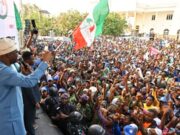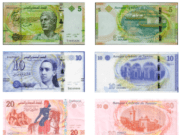Foreign investors have pulled out ₦420.37bn from the Nigerian equities market in the first quarter of 2025.
The amount, according to the latest data from the Nigerian Exchange, represent a 251 per cent increase in capital flight compared to the ₦119.81bn recorded in the same period in 2024.
The most dramatic shift occurred in March 2025, when total foreign transactions soared to ₦699.89bn from ₦42.65bn in February and ₦71.51bn in January.
Foreign investors accounted for 62.74 per cent of the ₦1.115tn total trade value in March, a sharp contrast to the 8.37 per cent share recorded in February and 11.78 per cent in January.
The March figure was split almost evenly between inflows of ₦349.97bn and outflows of N349.92bn, suggesting quick round-trip movements and short-term positioning rather than long-term investment.
Compared to previous months, the numbers reveal the volatile nature of foreign participation.
Inflows and outflows in February stood at N18.05bn and N24.60bn respectively, while January posted N25.66bn in inflows and N45.85bn in outflows.
Cumulatively, Q1 2025 saw total foreign inflows of N393.68bn—up 322 per cent from N93.37bn in Q1 2024.
However, the quarter closed with a net deficit of N26.69bn, pointing to lingering investor apprehension about Nigeria’s economic stability and policy consistency.
While foreign activities surged, domestic participation declined in March. Total domestic transactions dropped by 10.98 per cent to N415.62bn from N466.82bn in February and N535.54bn in January.
Retail investors traded N197.12bn in March, down from N214.51bn in February, while institutional investors accounted for N218.50bn, lower than February’s N252.31bn.
So far in 2025, domestic trades have totaled N1.417tn, compared to N1.335tn in Q1 2024, though growth momentum has slowed.
Domestic investors now account for 63.53 per cent of total market activity, down from 86.23 per cent a year earlier.
March 2025 marked the first time this year that monthly trade value crossed the N1tn mark.
At N1.115tn, it more than doubled February’s N509.47bn and surpassed January’s N607.05bn. Year-on-year, it was a 107.14 per cent increase from N538.54bn recorded in March 2024.
In dollar terms, based on the March NAFEM rate of N1,536.82/$1, the month’s total trade volume equates to $725.86m, up from $341.36m in February.
Historically, domestic investors have dominated the Nigerian equities market. Between 2007 and 2024, domestic transactions rose from N3.556tn to N4.735tn, while foreign transactions grew from N616bn to N852bn.
However, the March figures indicate a shift in dynamics, as foreign investors outperformed domestic participants for the first time in over a year.
For Q1 2025, total transactions stood at N2.232tn, with foreign trades accounting for N814.05bn (36.47 per cent) and domestic trades at ₦1.417tn (63.53 per cent).
This is a significant change from Q1 2024, when foreign investors contributed just 13.77 per cent and domestic trades dominated at 86.23 per cent.
The sharp rise in foreign trades and outflows is taking place against the backdrop of reforms and exchange rate instability.
Since mid-2023, the Central Bank of Nigeria has implemented FX liberalisation and tightened monetary policy in a bid to attract foreign capital and tame inflation.
However, the naira’s depreciation—from ₦1,492.49/$1 in February to ₦1,536.82/$1 in March—and inflationary pressures have dampened confidence.
Headline inflation rose to 24.23 per cent in March 2025, reversing the drop to 23.18 per cent in February following the rebasing of the Consumer Price Index.
Rising food and transport costs, driven by exchange rate pass-through and higher logistics expenses, contributed to the uptick.
Some investors may be using the market to exploit brief windows of naira strength, entering during moments of currency appreciation and exiting once depreciation resumes.
Others remain cautious over the sustainability of Nigeria’s fiscal and monetary reforms.
While block trades and the influx of foreign funds may suggest a renewed interest in Nigerian assets, it may reflect speculative bets on short-term currency movements.
Credit: punchng.com











































































